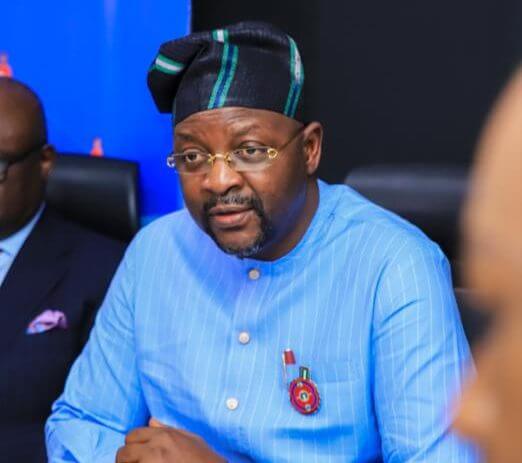The list of Sixty Sports Icons released by the Federal Ministry of Youth and Sports Development to celebrate Nigeria’s 60th independence anniversary sends a wrong message to stakeholders in the industry: That you can be a cheat or a non-contributor to the sports industry and still be an icon OLUKAYODE THOMAS reports
While Dare, a neophyte in sports may be pardoned if he humbly apologizes and withdraws the list, members of the panel that gave him the final list ought to bury their heads in shame
In the history of British athletics, Linford Christie stands out as the greatest achiever. The first British man to have won gold medals in the 100 metres at the Olympic Games, World Championships, European Championships and Commonwealth Games.
Christie was the first European to run a sub-10:00 sec and the most decorated British athlete. Celebrated by the elites and the masses, Christie won 24 medals in a glittering career.
The moment he tested positive to drug in 1999, Christie became a pariah in global sports. The British Olympic Association gave him a red card, the World Athletics (IAFF) prohibited him from working for the BBC at the Sydney Olympics.
Lance Armstrong’s iconic image in the sporting world ceased the day the seven consecutive Tour de France winner tested positive to performance enhancing drugs. He was stripped of all of his achievements and like Christie, he became an outsider in the sports family.
The fairy tale story of Marion Jones is stuff epic films are made of. The best thing to happen to women sprinting in America after Florence Griffith-Joyner, Jones was every Americans’ heroine but that changed the day it was known that her feats were made possible by steroids.
Celebration of Drug Cheats
Before now, drugs cheats were tolerated among members of the sports family in Nigeria but the current Sports Minister Sunday Dare elevated them from the backseat to the high table by naming some of them among the 60 icons of sports when we celebrated our sixtieth independence anniversary last month.
While Dare, a neophyte in sports, may be pardoned if he humbly apologizes and withdraws the list, members of the panel that gave him the final list did Nigerian sports a disservice.
Assuming their knowledge of Nigeria’s sports history and best global practices in sports is vague, are they also averse to consulting several encyclopedia of sports in Nigeria who will give them an untainted list for free?
The first two names on the list, Chioma Ajunwa and Mary Onyali, have been banned for taking performance enhancing drugs during their career so they can’t be icons.
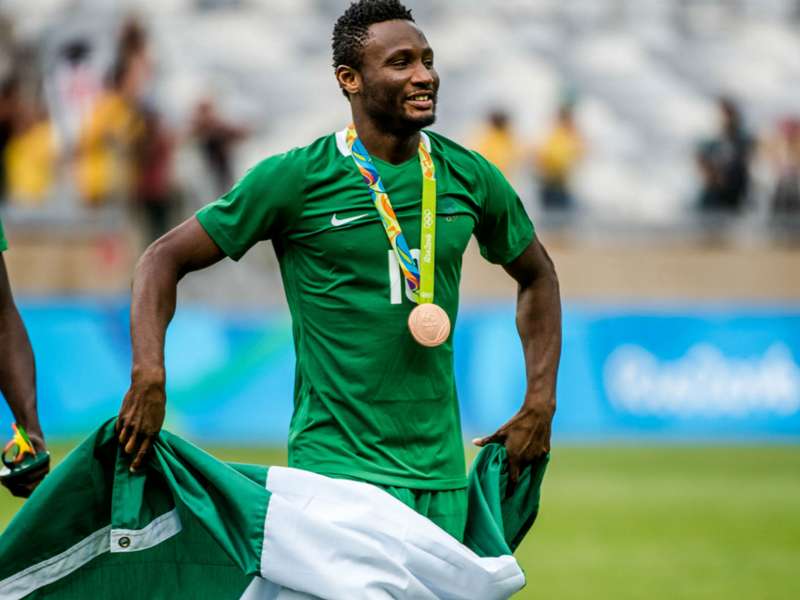
The dictionary defines icon as a person worthy of veneration. An athlete, caught and banned for cheating cannot be worthy of veneration. Simply put, a drug cheat cannot be a role model.
Tainted Relay Teams as Icons
Apart from Ajunwa, Onyali and other athletes who have been banned for cheating named as icons, winners of the following relay medals cannot be icons because a member of the team has been banned for cheating.
Barcelona’92 4x100m silver winning team, the Atlanta’ 96 4X400m silver medal-winning team, and the Sydney 2000 gold medal-winning team. By naming the team as icons you have inadvertently named a drug cheat as an icon.
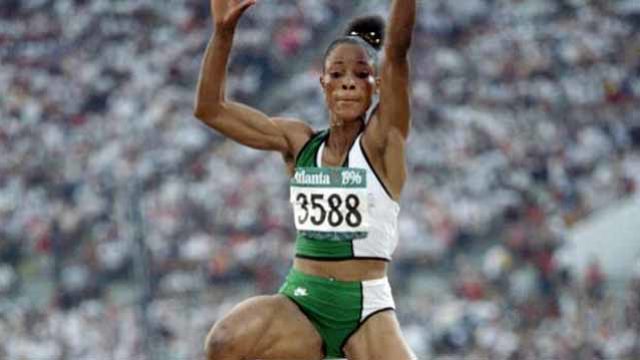
When the U.S. 4x400m relay team was stripped of the gold medal won at Sydney 2000 Olympics, only Antonio Pettigrew tested positive for drugs, other members of the team Alvin Harrison, Calvin Harrison, and Michael Johnson were innocent but they lost their medals.
Ditto the Jamaica team at the Beijing 2008 Olympics only Nester Carter tested positive but Usain Bolt, Asafa Powell, and Michael Frater lost their gold medals.
Ogunkoya and Bada Ought to Stand Alone
Members of Dare’s panel that joined Falilat Ogunkoya with the Atlanta 4x400m silver winning team are either ignorant of her achievements or they are being simply mischievous.
Ogunkoya is the first Nigerian athlete ever to win an individual medal in athletics, one of the first to win a medal in the inaugural World Junior Championships, a gold medal in 200m.
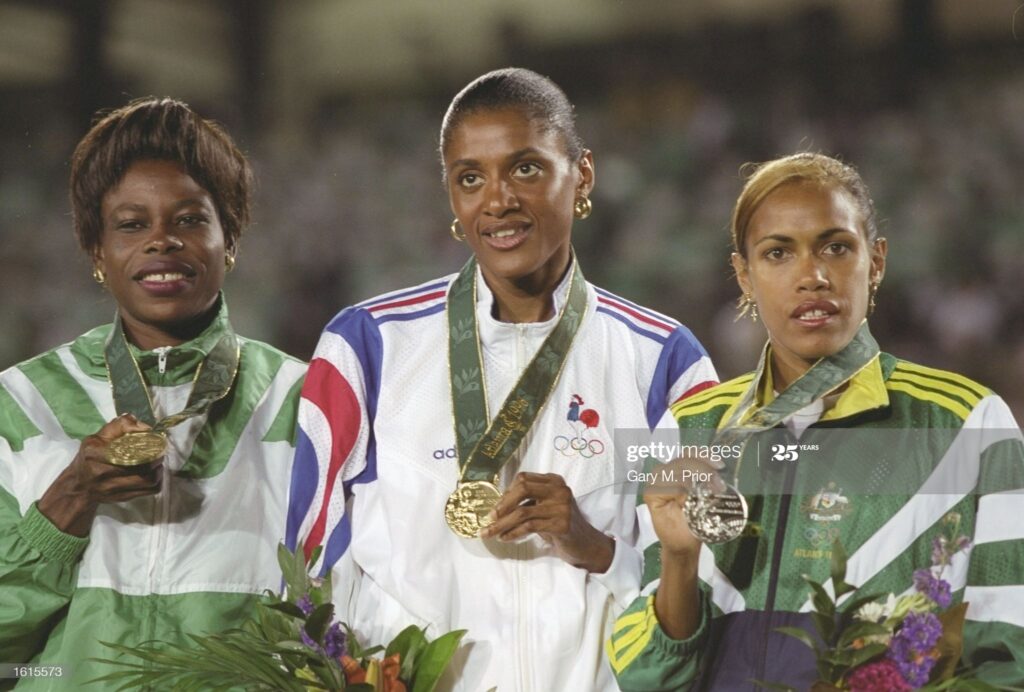
Fali as she is the fondly called was the first and only Nigerian female to rank number one in the world in the women 400m in 1998, the same year she was ranked number two in the world in 200m after Marion Jones.
On the continent Fali was a colossus in the 200m and 400m, winning gold and silver medals in the African Championships and All Africa Games.
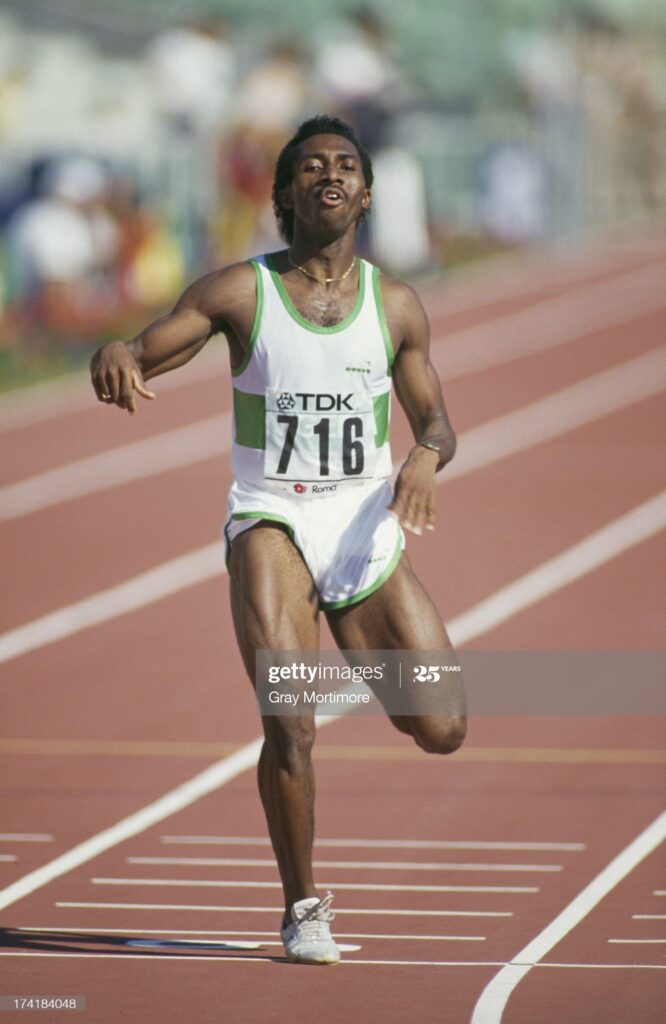
A silver medalist in the World Indoor, Fali’s time of 49.10 sec returned at the Atlanta’96 Olympics is the African record in 400m and the twelfth fastest of all time.
Joining Sunday Bada with the Sydney 2000 Olympic silver medal winning team is pathetic. World Champion Indoor in 1997, Bada won 400m on the national stage a record nine times.
Bada has the second fastest time ever by a Nigerian quarter-miler, after Innocent Egbunike’s 44.17 s.
Apart from winning the World Athletics Continental Cup medal on many occasions, Bada also won medals at the Commonwealth Games, All African Games and African Championships medals in 200m, 400m and the relays, Bada also won relay medals in the World Athletics Championships, a bronze in 1995 and a relay gold medal at the Sydney 2000 Olympics.
Ogunkoya and Bada achieved their feats without testing positive to drugs.
Omission of Egbunike and Alli
While Ogunkoya and Bada were lucky to be smuggled in via relay teams, the complete exclusion of Innocent Egbunike and Yussuf Alli is unbelievable.
Athletics aficionados, including this writer, are still dumbfounded that the duo, despite their immense achievements on and off the track without drug scandals were not worthy of being among the sixty sports icons from 1960 to 2020.
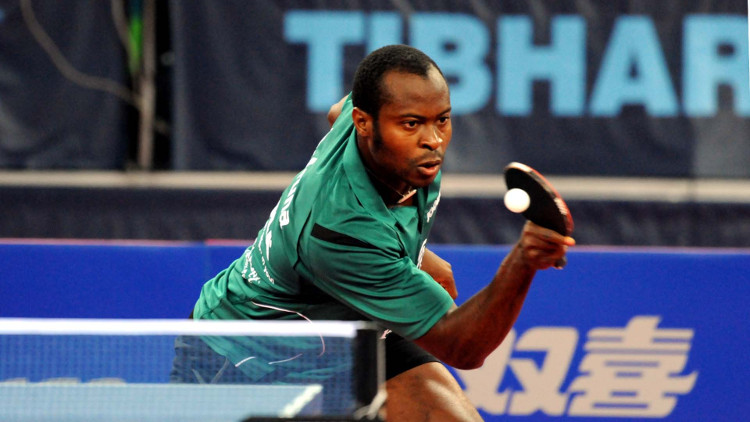
Egbunike was so good a quarter-miler that at the finals of the 400m in the 1987 All Africa Games in Nairobi, Kenya President Arab Moi of Kenya exclaimed “This Innocent is not innocent”, after Egbunike defeated his favourite athlete, David Kitur, to win the gold medal in the 400m.
A great athlete who is currently an excellent coach, Egbunike has been head coach of Team Nigeria contingents to many games and championships.
He has been personal coach to athletes and teams from various countries like USA, England, Canada, Cameroon, Bahamas, Senegal and others.
He coached many athletes to win gold, silver and bronze medals in games and championships. They include Chris Brown, Angelo Taylor, Jamie Baluch, Tyree Washington, Solomon Warrisso, Merlene Ottey and others.
Several Nigerians have won medals under Egbunike. They include the gold medal winning team at Sydney Olympics, the Ezinwa Twins, Davidson and Osmond, Fatima Yusuf, silver and bronze medal winning team at Beijing Olympics and several others.
Because of his feats as an athlete, he was inducted into the Hall of Fame by Azusa Pacific University in 1992 and National Association of Intercollegiate Athletes (NAIA) Hall of Fame in1988.
Egbunike’s achievements on track include being ranked Top 10 in the world for 400m for five years, and, World University Games Champion in 200/400m.
He won the Africa Games double gold medal in 1987, was Africa’s record holder in 400m from 1987 to 2006, former Commonwealth record holder in 400m in 1984, and ran under 45.00 secs in 400m 12 times.
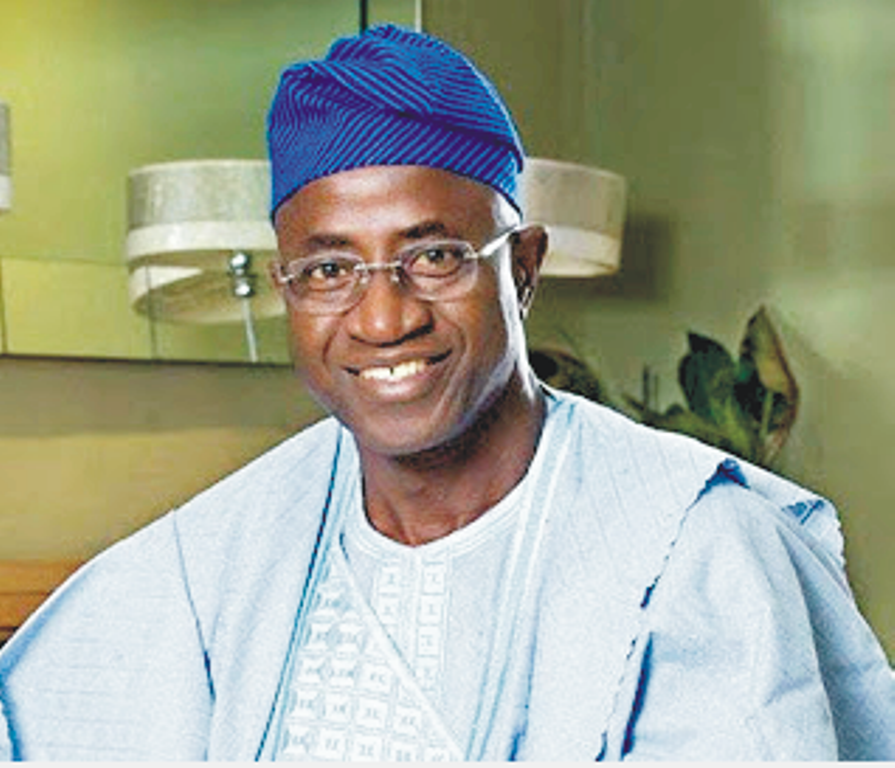
Egbunike was a member of the quartet that won Nigeria’s first athletics medal, a bronze at the Los Angeles ’84 Olympics and won the World Athletics World Championships silver medal at the Rome ’87 championships and was voted African/Nigerian Athlete of the Year in 1987.
That Nigeria is the number one destination for marathon and road races runners in Africa today and one of the top destinations in the world is due to the financial muscle of Mike Itemuagbor, Lagos State Government and Access Bank, and the marketing strategies of Nilayo Sports Management Limited but their deep pockets was able to achieve great things with the technical and managerial acumen of Yusuf Alli, the renown long jumper whose seamless transition to becoming one of the best sports events manager is due to self-reinvention.
Within five years, Alli nurtured Okpekpe 10km Road Race and Access Bank Lagos City Marathon to be proud winners of the prestigious World Athletics Bronze and Silver Labels.
Alli has carried the gospel of marathon and races to Onitsha, Aba, Abeokuta, Sagamu, Kaduna and other parts of Nigeria with great success.
Always giving back to athletics in Nigeria, between 2013 and 17, Alli ensured AFN ran all its programmes despite paucity of funds. The success of Ese Brume at the Glasgow 2014 Commonwealth Games and Rio Olympics was largely due to Alli’s coaching acumen.
When Nigeria hosted the 2003 All African Games, Alli was the brain box of the Games Service, the department that was the engine room of the games.
An all-round sportsman who excelled in football and sprints before settling for long jump, Alli was a member of Team Nigeria contingent to Moscow ’80 Olympics Games as a high school student.
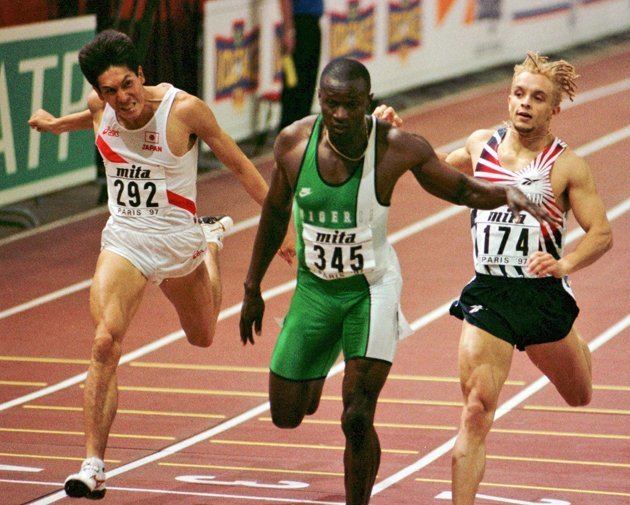
He won many medals in the long jump for Nigeria at the African Championship, All African Games, World Universities Games, World Athletics Continental Cup, the Commonwealth Games, and others.
A former African record holder in the long jump, Alli was captain of Team Nigeria to major games and championships like the Olympics, All African Games, Commonwealth Games, and others for a record 12 years. Alli was inducted into the University of Missouri Hall of Fame in 1991.
It’s a great travesty of justice that Egbunike and Alli were snubbed by the panel.
No Mikel and Amodu but Lawal, Amokachi
If the exclusion of athletic legends worth their weight in gold and inclusion of drug cheats was shocking, the exclusion of Shaibu Amodu and John Obi Mikel and the inclusion of Daniel Amokachi and Garba Lawal over them is scandalous.
Apart from being a part of the Atlanta ’96 team and being a fringe player in the Super Eagles, what qualifiers Lawal as an icon? Or even Amokachi? His disciplinary record as a player was awful. Amodu was the first indigenous coach to qualify Nigeria for the World Cup in 2002, he repeated it again in 2010. He left an indelible mark as coach of many clubs in Nigeria and beyond.
Mikel was one of the forces that ensured Nigeria won the Nations Cup in South Africa in 2013. After being made Team Nigeria captain to Rio 2016 Olympics, he committed so much personal resources to ensure Nigeria won a medal in football, our only medal in Rio.
In Europe, where they played, Mikel’s achievements dwarfed that of Lawal and Amokachi combined. Apart from winning the prestigious UEFA Champions Leagues, Europa League, Mikel won the EPL titles, FA Cups, Carling Cup, and other individual and club honours.
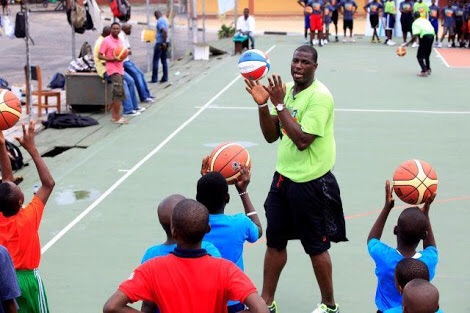
One cannot also understand the choice of Perpetua Nkwocha over Mercy Akide, nor the exclusion of Kadri Ikhana who led the Enyimba team that broke our CAF Champions League jinx.
Aruna Quadri’s Exclusion Unexplainable
Omowumi Majekodunmi, Funke Oshinaike, Segun Toriola and Atanda Musa all played a prominent role to ensure that Nigeria dominated Table Tennis in Africa and to some extent in the Commonwealth but the achievements of Aruna Quadri on the world stage dwarf their achievements.
Since 2014, Quadri has been a force to reckon with in global table tennis. He is the first African player to win the prestigious ITTF world table tennis player of the year award.
At the 2016 Rio Olympics, the IOC named him the best African table tennis star of all time. Also, his victory at the 2017 Polish Open made him the first African to claim an ITTF tournament title outside Africa.
Quadri is the first Nigerian – and the second African – to make the top 18 in the monthly ranking of the world table tennis ruling body. In European Table Tennis, Quadri’s achievements for various clubs are phenomenal.
Why Dick Tiger and not Ifeajuna?
The panel that selected the 60 icons in 60 years seems confused about their terms of reference. Why include Dick Tiger whose feats especially beating French-Algerian Cherif Hamia to the world title in 1957 was before our independence and if its terms of reference pre-dates independence why exclude Emmanuel Ifeajuna, the first Black African to win a gold medal in an international game when he won the gold medal in the High Jump at the 1954 Commonwealth Games.
The inclusion of Chika Chukwumeriji, Duncan Dokiware, Odunayo Adekuruoye, D’Tigress, Israel Adesanya, and a host of others are either for political correctness or a joke taken too far.
Dangote, Adebutu over Nath Idowu, and other Selfless Sports Lovers?
Are cement manufacturing, rice importation, and gambling now sporting events? Have Aliko Dangote and Kesington Adebutu won multiple medals in events that qualify them to be sports icons?
Aliko and Adebutu’s contributions to sports are insignificant when compared to that of Nathaniel Idowu, the man who spent millions of personal cash over several decades for football, or Dokun Abidoye, Emmanuel Iwuanyanwu, Rafiu Ladipo, Israel Adebajo, Omolade Okoya-Thomas, Sebastian Babatunde Williams, Madam Rangers, Lekan Salami, Baba Eleran, Muktar Mohammed Aruwa, Fabio Lanipekun, Sunny Obazu-Ojeagabse, Bola Jegede, Babatunde Oshuntolu and several others who made personal sacrifices, spent their hard earn money and talents to sports development in Nigeria. These deserve to be celebrated as icons instead of Dangote and Adebutu.
Not All Gloom with Oyedeji, Others
In a country where footballers swimming in millions of dollars don’t give back to society, the inclusion of former NBA star and President of Olumide Oyedeji Youth Foundation is a good tiding.
Established in 2000, Oyedeji’s foundation empowers youths using sports and education.
The foundation has given out over 300 scholarships and empowered over 45,000 youths in more than 30 cities in Nigeria and over 20 different cities around the world like South Africa, Angola, Senegal, Liberia, Egypt, Togo, China, Spain, Mali, Germany, South Korea, Puerto Rico, and the United Kingdom.
Oyedeji’s foundation has mentored youths who have also become NBA players, Olympians, accountants, lawyers, engineers, and more.
The inclusion of greats like Segun Odegbami, Jighere Wellington, Odion Aikhoje, Modupe Oshikoya, Hogan Bassey, Samuel Peters, Nojeem Mayegun, Rashidi Yekini, Power Mike, Nduka Odizor, MKO Abiola, and a few others are the only bright sides of a list that rewards cheats and nepotism.
OLUKAYODE THOMAS is a Lagos based reporter.


